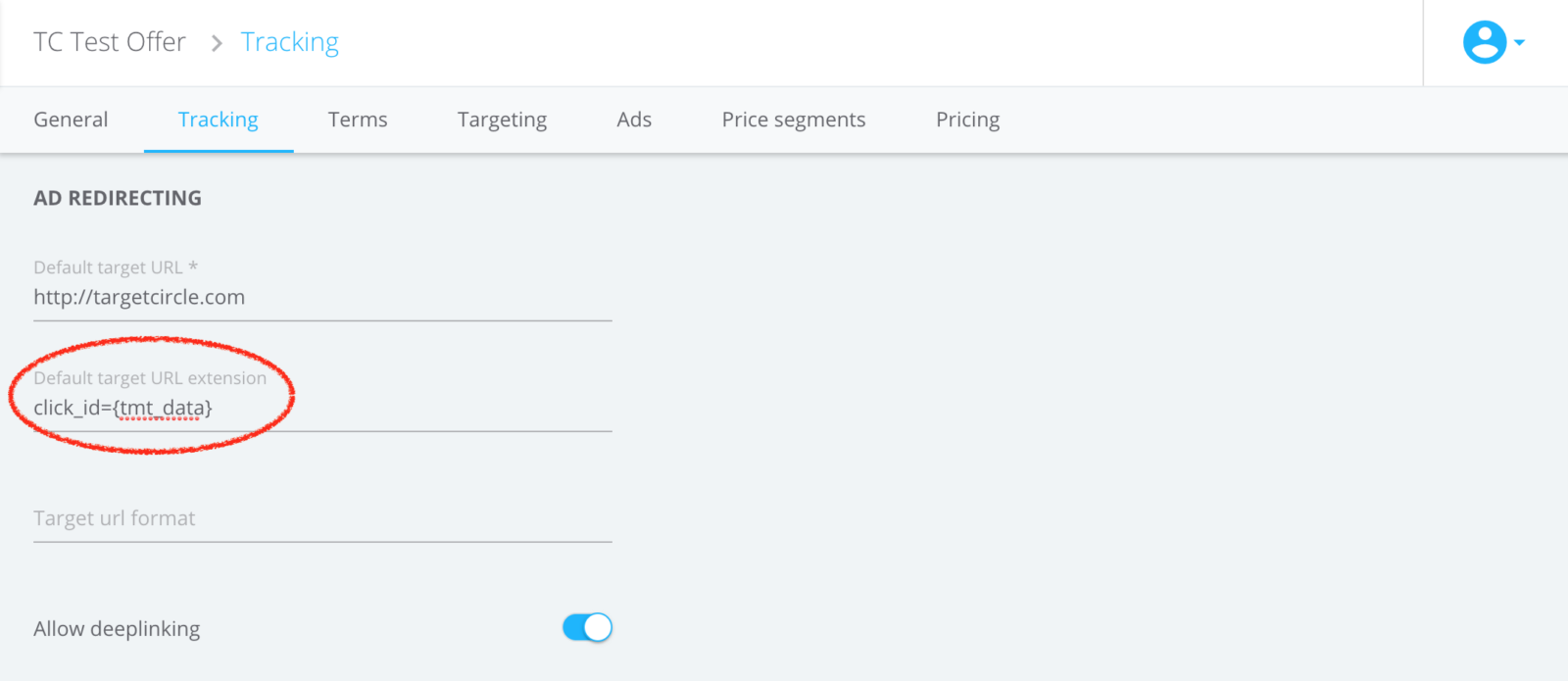Postback tracking uses the unique ID of a click to determine the Publisher of the transactions. We commonly refer to this unique click ID as tmt data. This value must be passed as a parameter in the target URL and stored for the user by you or an attribution partner. When the same user makes a transaction, you have to do a server-to-server call with the stored click ID.
1. Passing the click ID
To pass the click ID to the target URL of your Offer, it should be added as a default target URL extension. This can be set in the tracking tab when creating/ editing the Offer:

As the parameter name, you can use anything you want. If you are using an attribution partner, you should check which name to use. The value has to be set to {tmt_data}. This placeholder is recognised by our tracking and replaced with the unique click ID. The resulting target URL where the user lands, could be:
http://targetcircle.com/?click_id=e9541517-a8df-46a0-edg9-52058gfdb063
2. Storing the click ID
Storing the click ID happens completely on your side. If you already store user data you can extend this to save the tmt data as well. For example in your database, in a first-party cookie or via an attribution partner. If you are not storing user data yet, the easiest implementation is using first-party cookies.
3. Calling the postback
When a user completes a transaction, you have to do a GET request to our tracking server. You can grab the URL from here:
https://p.trackmytarget.com/?tmt_data={tmt_data}&type={type}&event_sid={event_sid}&id={id}&amount={amount}¤cy={currency}&code={code}Before you call the URL, you should replace all the parameter values in the curly brackets {}.
Parameters
-
{tmt_data}required
Replace with the unique ID you saved for the click. -
{type}required
Replace with ‘sale’, ‘lead’ or ‘install’ depending on the type of transaction you are tracking. -
{event_sid}
Replace with the 6 character sID of the product group. You can find this value in the tracking tab when creating or editing an Offer or you can ask your account manager. If no value or an invalid value is passed, it falls back to the default product group. So it is only required if you use multiple product groups. If you want to work with multiple product groups, follow these instructions. -
{id}
Replace with the ID you assign to the transactions in your own system. Required if you set up the Offer to require unique transaction IDs -
{amount}
Replace with the transaction amount. Do not use any thousand delimiters and use . as a decimal delimiter (e.g. 1234.56 ). Required if you want to pay out a percentage of the transaction amount to your Publishers. -
{currency}
Replace with the three-letter alphabetic currency code according to the ISO 4217 standard (e.g. EUR ). Required if you are using theamountparameter. -
{code}
Replace with the voucher code used for the order. Accepts all alphanumeric characters, hyphens (-) and underscores (_). Required if you are using voucher code tracking.






